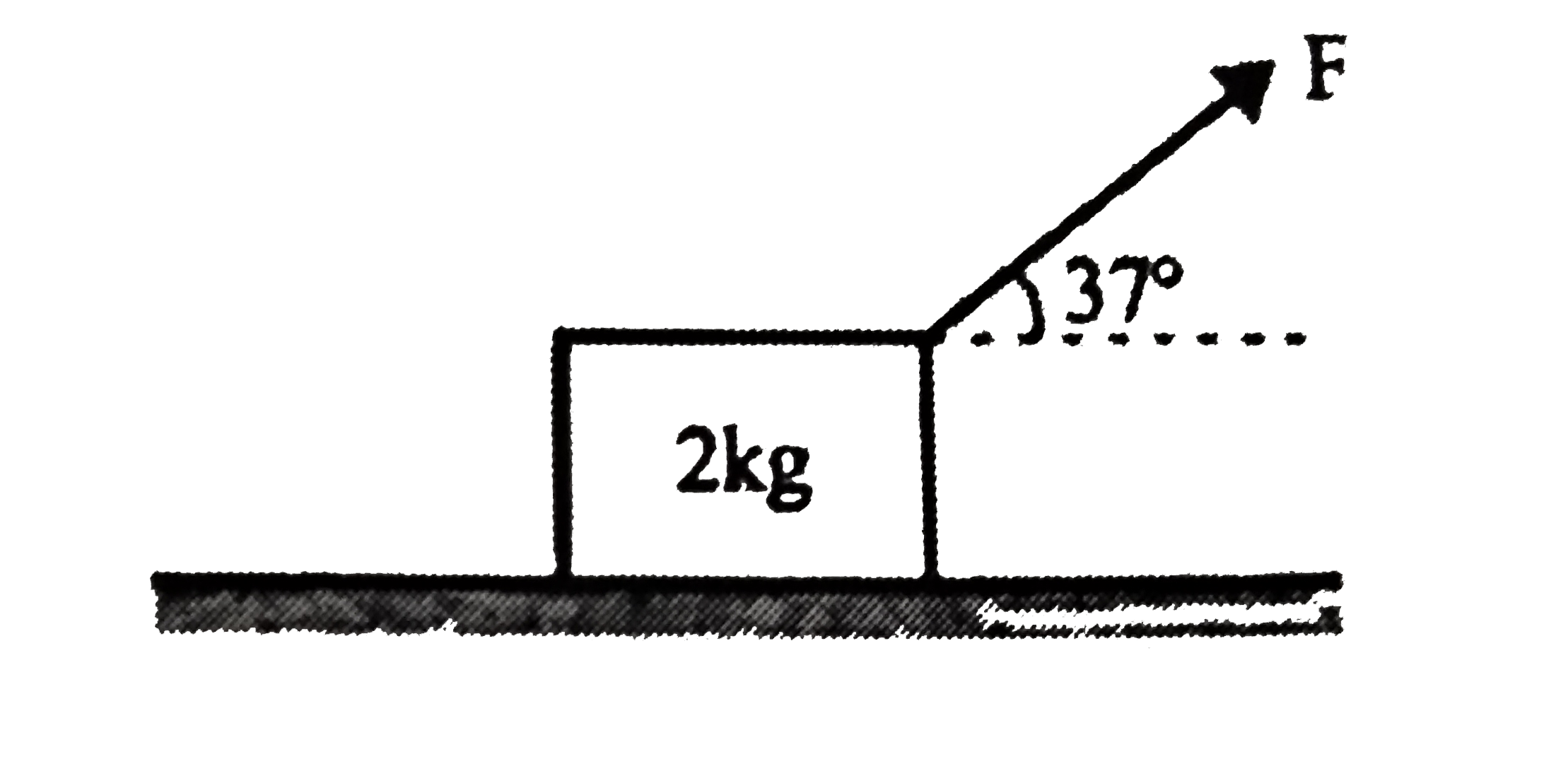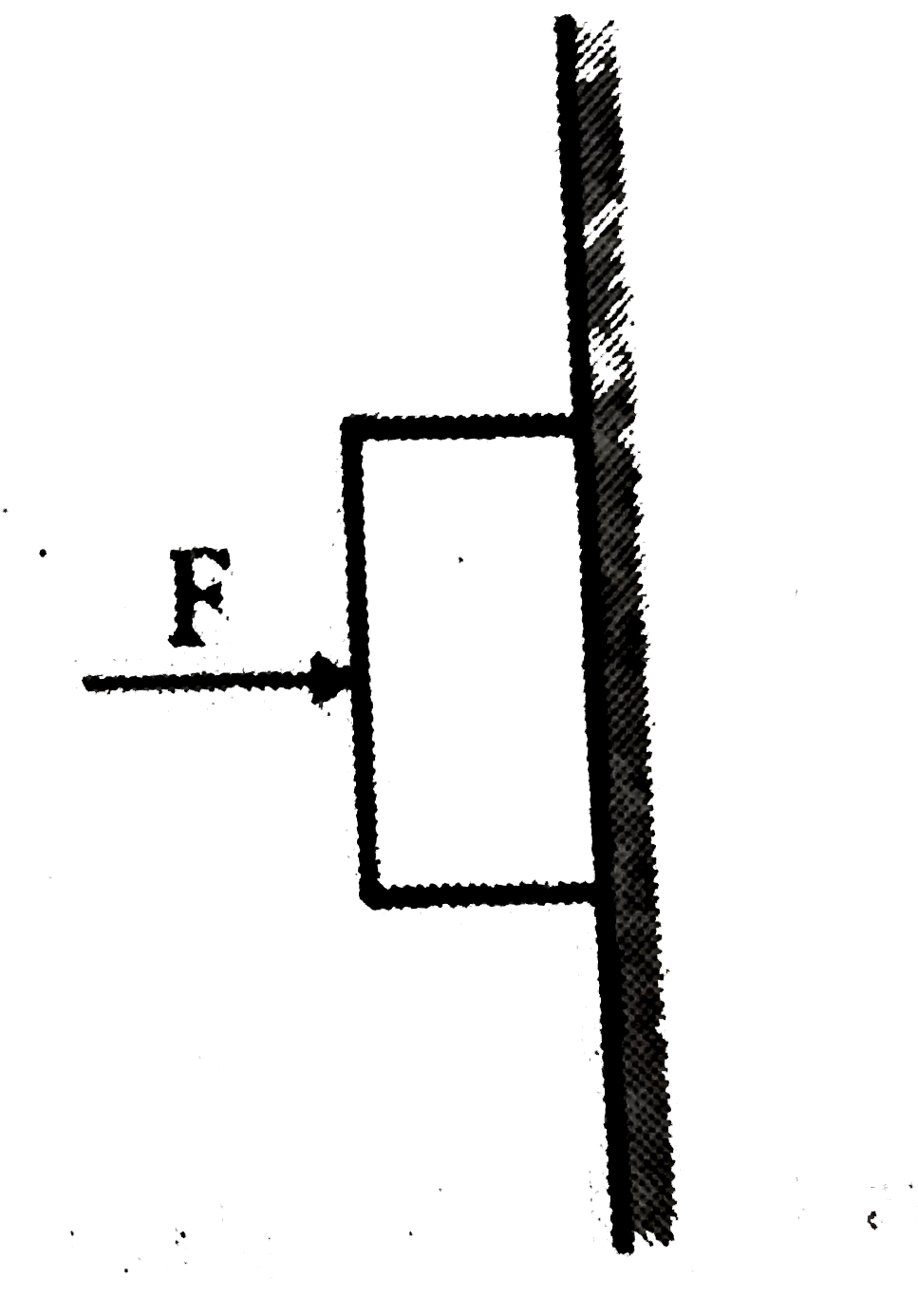A block of 10kg is pulled at a constant speed on a rough horizontal plane by a force of 20N. Calculate the coefficient of friction ?
The correct Answer is:0.2
To solve the problem, we will follow these steps:
Step 1: Identify the given values
- Mass of the block (m) = 10 kg
- Force applied (F) = 20 N
- Acceleration due to gravity (g) = 9.8 m/s²
Step 2: Calculate the normal force (N)
The normal force (N) acting on the block on a horizontal plane is equal to the weight of the block, which can be calculated using the formula:
N=m⋅g
Substituting the values:
N=10kg⋅9.8m/s²=98N
Step 3: Understand the relationship between frictional force and applied force
Since the block is moving at a constant speed, the net force acting on it is zero. This means that the applied force (F) is equal to the frictional force (f):
F=f
Step 4: Write the formula for the coefficient of friction (μ)
The coefficient of friction (μ) is defined as the ratio of the frictional force (f) to the normal force (N):
μ=fN
Step 5: Substitute the known values into the equation
Since we know that f=F:
μ=FN
Substituting the values we have:
μ=20N98N
Step 6: Calculate the coefficient of friction
Now, performing the division:
μ=2098≈0.204
Step 7: Round the result
Rounding to two decimal places, we get:
μ≈0.20
Final Answer:
The coefficient of friction is approximately 0.20.
---
- Mass of the block (m) = 10 kg
- Force applied (F) = 20 N
- Acceleration due to gravity (g) = 9.8 m/s²
The normal force (N) acting on the block on a horizontal plane is equal to the weight of the block, which can be calculated using the formula:
N=m⋅g
Substituting the values:
N=10kg⋅9.8m/s²=98N
Since the block is moving at a constant speed, the net force acting on it is zero. This means that the applied force (F) is equal to the frictional force (f):
F=f
The coefficient of friction (μ) is defined as the ratio of the frictional force (f) to the normal force (N):
μ=fN
Since we know that f=F:
μ=FN
Substituting the values we have:
μ=20N98N
Now, performing the division:
μ=2098≈0.204
Rounding to two decimal places, we get:
μ≈0.20
The coefficient of friction is approximately 0.20.
Topper's Solved these Questions
Similar Questions
A block of mass 20kg is placed on a rough horizontal plane and a horizontal force of 12N is applied. If coefficient of friction is 0.1 the frictional force acting on it is,
View SolutionA block of mass m is pulled by a constant powert P placed on a rough horizontal plane. The friction coefficient the block and surface is μ. The maximum velocity of the block is.
View SolutionA force of 98 N is just able to move a block of mass 20 kg on a rough horizontal surface. Calculate the coefficient of friction and the angle of friction (g=9.8ms−2).
View SolutionA block of mass m is pulled by a force of constant power P placed on a rough horizontal plane. The friction coefficient between the block and the surface is μ. Then
View SolutionA block of mass 1 kg is pressed against a wall by applying a horizontal force of 10N on the block. If the coefficient of friction between the block and the wall is 0.5, magnitude of the frictional force acting on the block is
View SolutionA block of mass 2 kg is kept on a rough horizontal floor an pulled with a force F. If the coefficient of friction is 0.5. then the minimum force required to move the block is :-

View SolutionA block of mass 1 kg is held at rest against a rough vertical surface by pushing by a force F horizontally. The coefficient of friction is 0.5. When

View SolutionA block of mass 0.1 kg is held against a wall applying a horizontal force of 5 N on the block. If the coefficient of friction between the block and the wall is 0.5, the magnitude of the frictional force acting on the block is :
View SolutionA horizontal force F pulls a 20 kg box at a constant speed along a rough horizotal floor. The coefficient of friction between the box and the floor is 0.25. The work done by force F on the block in displacing it by 2 m is
View SolutionA block of mass 1kg is pushed against a rough vertical wall with a force of 20N, coefficient of static friction being 14 Another horizontal force of 10N is applied on the block in a direction parallel to the wall. Will the block move? If yes, in which direction ? If no, find the frictional force exerted by the wall on the block. (g=10m/s2)
View Solution
